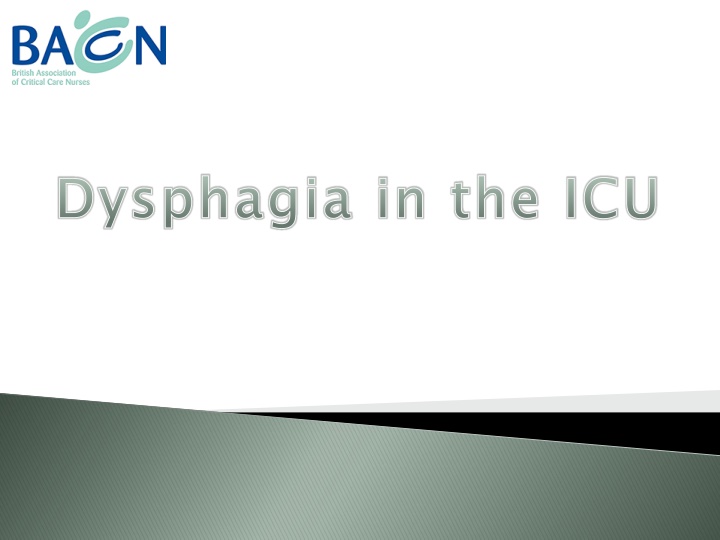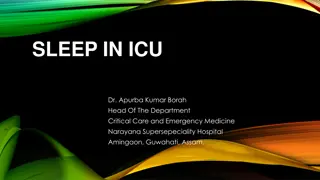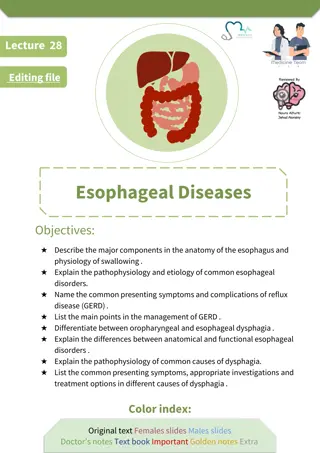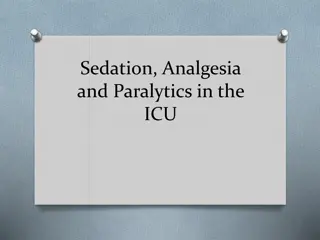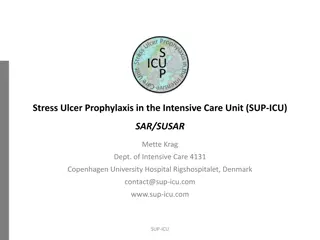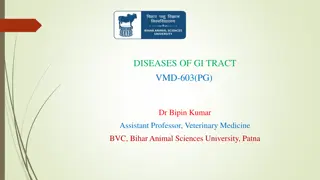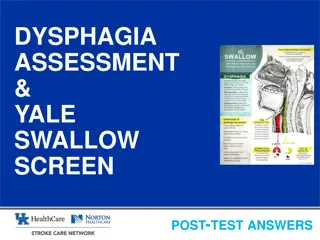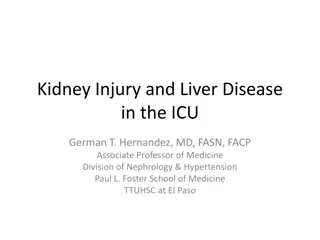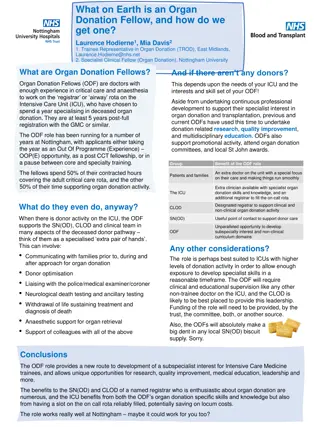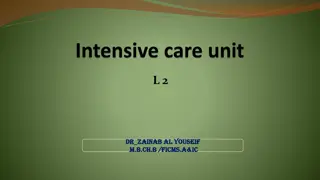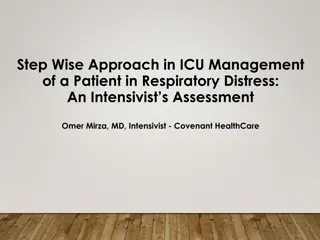Dysphagia in the ICU: Assessment and Impact
Dysphagia, the difficulty in swallowing, is a common issue in the ICU, affecting a significant percentage of intubated patients. It increases mortality, risk of pneumonia, malnutrition, and prolongs hospital stays. Assessment methods like bedside evaluation and FEES are crucial in managing dysphagia post-extubation. Research highlights the importance of early detection and management to improve patient outcomes.
Download Presentation

Please find below an Image/Link to download the presentation.
The content on the website is provided AS IS for your information and personal use only. It may not be sold, licensed, or shared on other websites without obtaining consent from the author.If you encounter any issues during the download, it is possible that the publisher has removed the file from their server.
You are allowed to download the files provided on this website for personal or commercial use, subject to the condition that they are used lawfully. All files are the property of their respective owners.
The content on the website is provided AS IS for your information and personal use only. It may not be sold, licensed, or shared on other websites without obtaining consent from the author.
E N D
Presentation Transcript
Dysphagia in the ICU Dysphagia in the ICU
Definition of dysphagia: Dysphagia is the inability to safely transfer food and liquid from the oral cavity to the oesophagus (Macht 2011). Occurrence in the ICU: from 3% to 62% of those patients who have been intubated (Zuercher 2019)
Dysphagia increases mortality by 9.2% (NCEPOD 2014) Increases risk of aspiration pneumonia Increased likelihood of malnutrition Prolongs ICU stay Prolongs hospital stay Still present on discharge in 60% of cases Increased morbidity and mortality
How dysphagia is assessed on the ICU Bedside swallowing assessment: Flexible Endoscopic Evaluation of Swallowing (FEES):
Are we good at this? A cohort of 135 ICU patients over a 12 month period who were eligible to receive a bedside swallowing assessment following extubation.
Some reading material (exciting)! Patrick Vuercher, Celine Moret, Rainer Dziewas, Joerg Schefold, Dysphagia in the intensive care unit: epidemiology, mechanisms and clinical management , Critical Care 23, Article 103, 2019. Madison Macht, Christopher King, Tim Wimbish, Brenden Clark, Alexander Benson, Ellen Burnham, Andre Williams, Marc Moss, Post-extubation dysphagia is associated with longer hospitalization in survivors of critical illness with neurological impairment , Critical Care 17, Article R119, 2013. Min Jung Kim, Yun Hee Park, Young Sook Park, You Hong Song, Associations Between Prolonged Intubation and Developing Post-extubation Dysphagia and Aspiration Pneumonia in Non-neurologic Critically Ill Patients , Annals of Rehabilitation Medicine, October 2015, 39(5), 763-771. Jens Schroder, Jorg Glahn, Rainer Dziewas, ICU-Related Dysphagia , ICU Management and Practise, v.15(3), 2015. Royal College of Speech and Language Therapists, Dysphagia Overview, https://www.rcslt.org/speech-and-language-therapy/clinical-information/dysphagia, 2019, accessed 21/11/2019. Karen Johnson, Laurie Speirs, Anne Mitchell, Heather Przbyl, Diane Anderson, Brenda Manos, Amy T. Schaenzer, Keri Winchester, Validation of a Postextubation Dysphagia Screening Tool for Patients After Prolonged Endotrachial Intubation , American Journal of Critical Care, March 2018 V.27(2).
